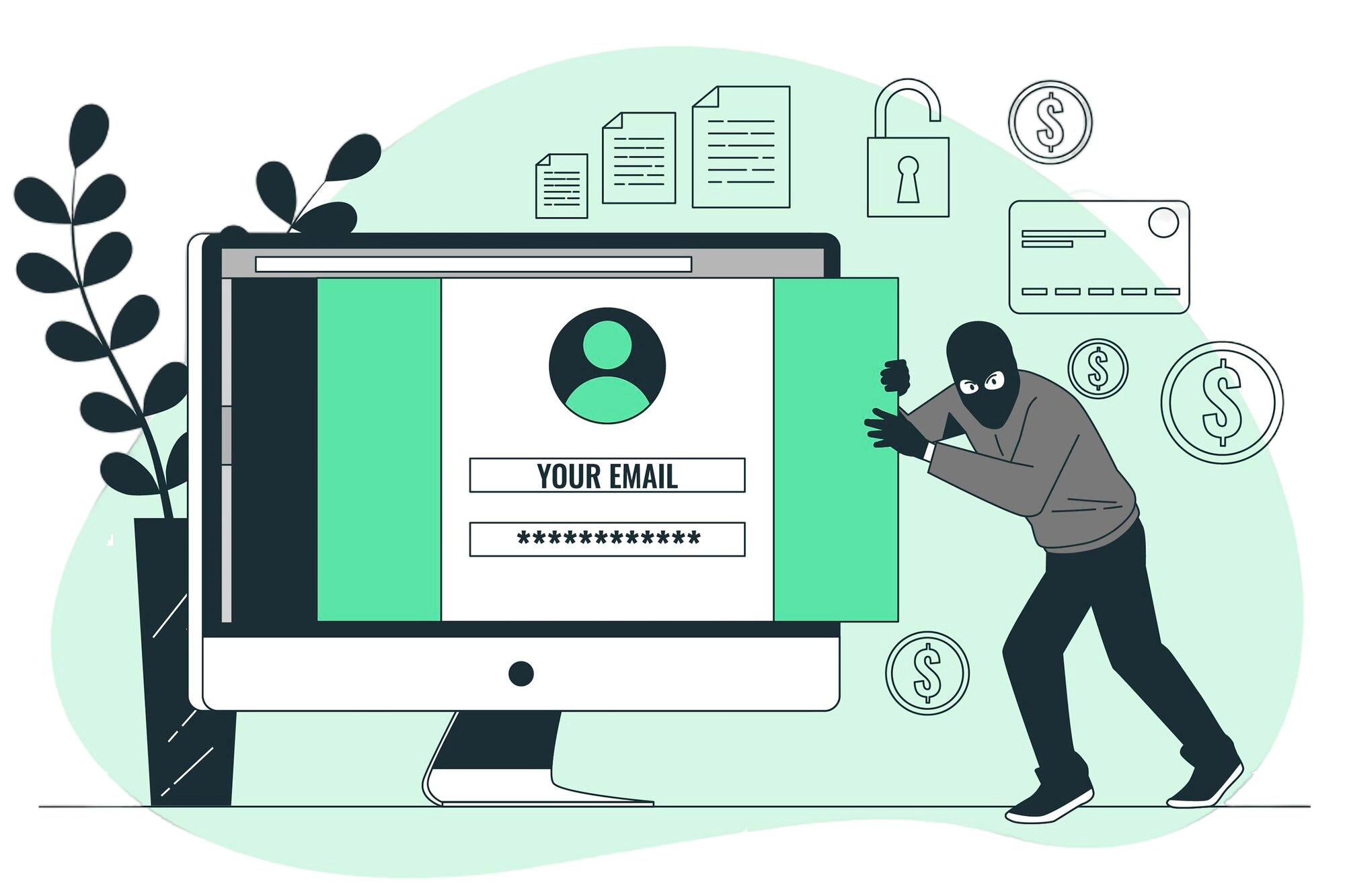Cyberattacks have become increasingly common in today’s digital age, and knowing if you’ve been hacked is crucial for protecting your personal information and digital security. Hackers can exploit vulnerabilities in your devices or online accounts to steal data, commit fraud, or cause other damage. This article will help you identify key symptoms of a hack and provide steps to secure your information if you suspect you’ve been compromised.
Unusual Account Activity
One of the most apparent signs of a hack is unusual activity in your online accounts. Hacking activity can include:
- Unexpected Password Changes: Receiving notifications about password changes you didn’t initiate strongly indicates unauthorized access.
- Login Alerts: Many services send alerts when your account is accessed from a new location or device. If you receive such alerts without logging in yourself, it’s a red flag.
- Unrecognized Transactions: Unrecognized transactions or withdrawals in banking and shopping accounts clearly indicate a potential hack.
FIND OUT IF YOUR ONLINE DATA AND CREDENTIALS HAVE BEEN LEAKED
DATA LEAK LOOKUP SERVICES BY AM I HACKED
Slower Device Performance
A sudden drop in your device’s performance can indicate that it has been compromised. Signs to look for include:
- Slow Operation: If your computer or smartphone is running unusually slow, it might be because malicious software is consuming your system’s resources.
- Crashes and Freezes: Frequent crashing or freezing could be due to malware affecting your device’s stability.
- High Data Usage: Unexpected spikes in data usage may signal that malicious programs send your information to hackers.
Unusual Pop-Ups and Ads
Pop-ups and ads are common online, but an increased frequency or unusual content can indicate a hack. Be cautious of:
- Excessive Pop-Ups: An influx of pop-ups, especially on sites that typically don’t have them, might mean your device is infected with adware.
- Suspicious Ads: Ads that seem out of place or overly aggressive can be a sign of malware.
Emails and Messages You Didn’t Send
Suppose your contacts report receiving strange emails or messages from you. In that case, your email or social media accounts may have been hacked. Indicators include:
- Spam Emails: Your account sends spam messages to your contact list without your knowledge.
- Unfamiliar Conversations: Seeing messages in your sent folder that you didn’t write.
Unfamiliar Programs or Files
Hackers often install software to maintain access to your system or collect information. Look out for:
- New Icons: Unexpected icons appearing on your desktop or new programs in your list of installed applications.
- Unknown Files: Files or folders you don’t recognize could be data the hacker is harvesting.
Browser Redirection
If your web browser frequently redirects you to unfamiliar or malicious websites, it could be a sign of a hack. Pay attention to:
- Homepage Changes: Your browser’s homepage has changed without your input.
- Search Engine Changes: Being redirected to a different search engine or landing page when performing searches.
Security Software Alerts
Modern antivirus and anti-malware programs are designed to detect suspicious activity. Take note of your security software:
- Detects Threats: It Alerts you to potential malware or viruses.
- Fails to Update: Is unable to update, which could mean a hacker is trying to bypass your protection.
What to Do If You Suspect a Hack
If you notice any of these symptoms, it’s crucial to act quickly:
- Change Your Passwords: Start with your email and banking accounts, then move on to other online services.
- Enable Two-Factor Authentication (2FA): Add an extra layer of security to your accounts.
- Update Your Software: Ensure your operating system, antivirus, and all applications are up-to-date.
- Run a Security Scan: Use reputable antivirus and anti-malware tools to scan and clean your device.
- Check for Unauthorized Transactions: Review your bank and credit card statements for unfamiliar activity.
- Contact Service Providers: Inform your email, social media, and financial service providers about the potential hack.
- Seek Professional Help: If the problem persists, consider consulting a cybersecurity expert.
Am I Hacked’s suggestions for protecting your online identity
Being aware of the key symptoms of a hack can help you take swift action to protect your personal information and devices. Regularly monitoring your accounts, maintaining updated security software, and practicing good online habits are essential to safeguard against cyber threats. Stay vigilant and proactive to ensure your digital safety.
Why You Should Hire Us for Expert Hacking Services
In the complex world of cybersecurity, having an expert by your side can make all the difference. Our team specializes in identifying and mitigating hacking threats with precision and efficiency. Here are a few reasons why you should choose our services:
- Expertise and Experience: Our professionals have extensive experience and knowledge of hacking techniques and cybersecurity measures. We stay updated with evolving threats to provide you with the best protection.
- Comprehensive Security Solutions: We offer a wide range of services, from threat detection and response to proactive security measures, ensuring digital safety.
- Tailored Strategies: We understand that every client’s needs are unique, and we develop customized strategies to address specific vulnerabilities and threats.
- Rapid Response: Time is critical when dealing with potential hacks. Our team provides swift and effective responses to mitigate risks and prevent further damage.
- Peace of Mind: With our expert team handling your cybersecurity, you can focus on your personal or business activities without worrying about digital threats.
Submit your Hack Removal Request
Trust us to safeguard your digital world with our specialized hacking and cybersecurity services.


Leave a Reply